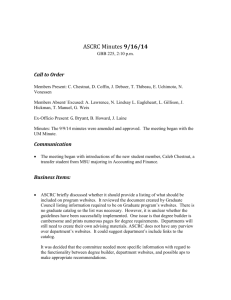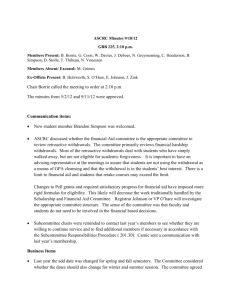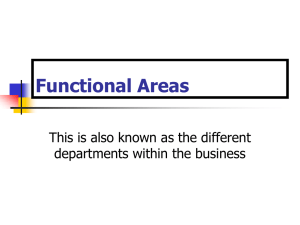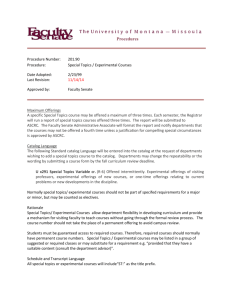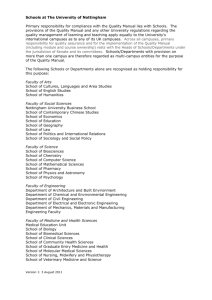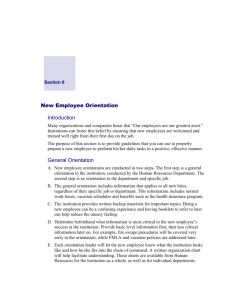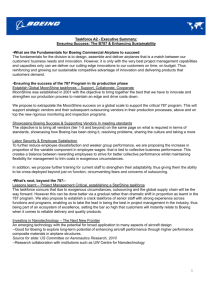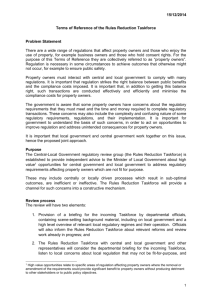9/18/13 - University of Montana
advertisement
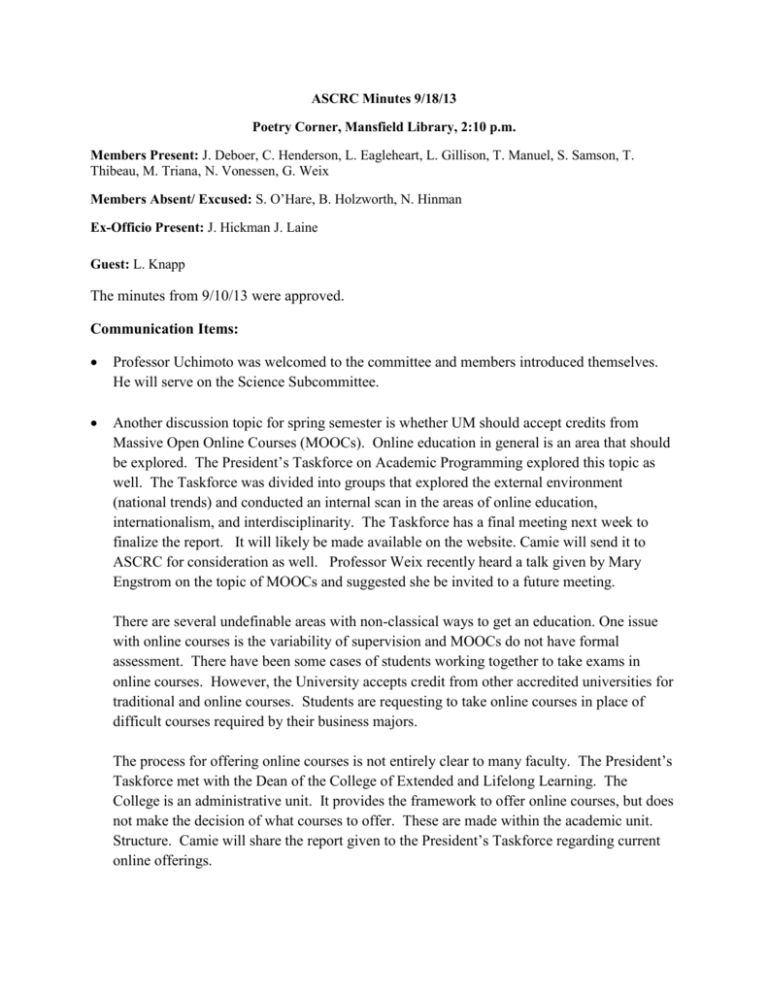
ASCRC Minutes 9/18/13 Poetry Corner, Mansfield Library, 2:10 p.m. Members Present: J. Deboer, C. Henderson, L. Eagleheart, L. Gillison, T. Manuel, S. Samson, T. Thibeau, M. Triana, N. Vonessen, G. Weix Members Absent/ Excused: S. O’Hare, B. Holzworth, N. Hinman Ex-Officio Present: J. Hickman J. Laine Guest: L. Knapp The minutes from 9/10/13 were approved. Communication Items: Professor Uchimoto was welcomed to the committee and members introduced themselves. He will serve on the Science Subcommittee. Another discussion topic for spring semester is whether UM should accept credits from Massive Open Online Courses (MOOCs). Online education in general is an area that should be explored. The President’s Taskforce on Academic Programming explored this topic as well. The Taskforce was divided into groups that explored the external environment (national trends) and conducted an internal scan in the areas of online education, internationalism, and interdisciplinarity. The Taskforce has a final meeting next week to finalize the report. It will likely be made available on the website. Camie will send it to ASCRC for consideration as well. Professor Weix recently heard a talk given by Mary Engstrom on the topic of MOOCs and suggested she be invited to a future meeting. There are several undefinable areas with non-classical ways to get an education. One issue with online courses is the variability of supervision and MOOCs do not have formal assessment. There have been some cases of students working together to take exams in online courses. However, the University accepts credit from other accredited universities for traditional and online courses. Students are requesting to take online courses in place of difficult courses required by their business majors. The process for offering online courses is not entirely clear to many faculty. The President’s Taskforce met with the Dean of the College of Extended and Lifelong Learning. The College is an administrative unit. It provides the framework to offer online courses, but does not make the decision of what courses to offer. These are made within the academic unit. Structure. Camie will share the report given to the President’s Taskforce regarding current online offerings. Credit for experiential credit will require some thought as well. There may be students returning to school after years of working in one career. A procedure will be needed to determine how to give credit for this experience. This may involve a portfolio review. ASCRC would also like to see data on dual listed courses (courses offered at high school that count for both high school and college credit). These courses are taught by high school teachers that meet the standards of Missoula College adjunct faculty. There are currently 226 students enrolled in dual credit courses. Chair Henderson will get the data regarding the number of courses and topics offered. There are several math and writing courses. It will also be helpful to review student performance in these courses. Chair Henderson gave an update from the Faculty Senate meeting. The motion to change the general education group of English Writing Skills to Writing was approved. The motion to end the UDWPA and implement a University-wide Program-level Assessment was favorably received for the most part. Chair Henderson explained that students’ grades in writing courses are the standard to satisfy proficiency and are directly connected to the curriculum. Students graduating from earlier catalogs where the UDWPA was a requirement would be exempted because the exam is no longer offered. Unfortunately this rewards students for procrastinating. It would be interesting to know how many students have met all degree requirements except the UDWPA. Loey Knapp, the Information Technology Strategist arrived at 3:30 to present information about efforts to move the University closer to degree audit. In order to successfully implement a degree audit system the data has to be accurate and useable. There should be only one source of data and it should be in the same format. Therefore, the IT Office has created a degree builder program for departments to use to create their degrees using various rules and dropdowns in the system. This will create a uniform description of programs that can be used as the source. The system also has flexibility and text fields to explain areas that are unclear. This will take place of the program descriptions currently in the catalog. There will be 5 departments involved in the beta test during the mid to third week in October. The goal is for this to be ready for next fall’s catalog. Once this system is in place then the University can think about degree audit. A survey was conducted to determine how much time is spent on the advising process. It is estimated that an electronic degree audit system would save 5073 hours or over $100,000 a year. There are also financial risks to students and departments if advising is not done accurately. Business ASCRC considered the revised policy drafts for 201.00 Curriculum Review Overview and 201.90 Special Topics / Experimental Courses. The questions regarding language in 201.00 were discussed by the committee. Professor Vonessen will revise the draft for consideration next week. The Special Topics Procedure (201.90) was updated to reflect concerns regarding permanent topic numbers in departments. The procedure was approved. The Credit Max procedure (203.20) will be eliminated since in mostly repeats catalog language. Catalog language should be removed from all procedures. Camie will review them and bring edits for the committee to consider next week. The AP/Clep procedure was on the review list because of problematic issues that may arise with transfer students and common course numbering. Most universities including Montana State University accept a score of 3 as recommended by the American Council of Education. UM’s accepts a default score of 4, but departments may accept a lower score. The matrix shows that there are only 4 departments that require a 4, the others accept a 3. It was agreed that the policy should show a default score of 3, with departments ‘option to require higher scores. A policy that requires all schools in the Montana University System to require the same score should come from the Board of Regents. The meeting was adjourned at 4.00 PM


